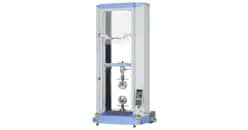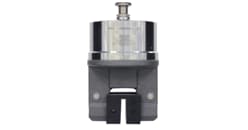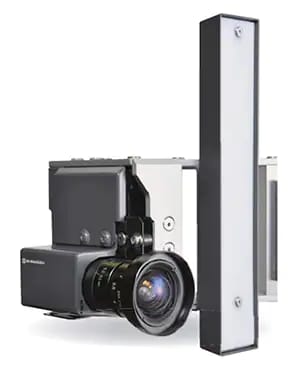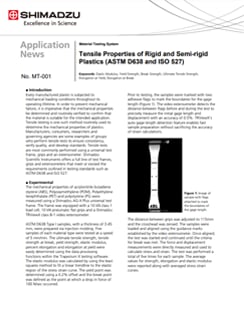ASTM D638 - Standard Test Method for Tensile Properties of Plastics
ASTM D638 is a key testing standard designed to measure the tensile properties of unreinforced and reinforced plastics. This test determines how a plastic material behaves when subjected to tensile forces, providing critical data for design, quality control, and material selection. The results offer insight into a material's strength, elongation, and modulus, helping manufacturers ensure that plastic products can withstand mechanical stresses in real-world applications.
This webpage provides an overview of ASTM D638, but it is recommended that users refer to the full ASTM D638 standard for complete details on procedures and requirements.
ASTM D638 Properties of Interest
The primary properties measured by ASTM D638 include:
Tensile Strength at Yield: The maximum stress a material can withstand before permanent deformation.
Tensile Strength at Break: The stress at which the material ultimately fails and breaks.
Elongation at Yield and Break: The amount of stretch the material undergoes before yielding or breaking, expressed as a percentage of the original length.
Tensile Modulus: A measure of stiffness, calculated from the stress-strain curve in the elastic region. It reflects how much the material deforms under load.
Poisson's Ratio: The ratio of transverse strain to axial strain, providing insight into how the material's shape changes under tensile forces.
ASTM D638 Testing Setup and Method
ASTM D638 testing is performed on a universal testing machine (UTM) with pneumatic grips designed to hold the specimen securely during the tensile test. The typical setup includes:
Pneumatic Grips: These grips are used to clamp the specimen securely without slippage as tensile force is applied.
Load Cells: These measure the tensile force applied to the specimen with high accuracy.
Extensometers: For precise measurement of strain, extensometers may be attached directly to the specimen or use video non-contacting methods like TRViewX, particularly for brittle plastics.
For certain plastics, environmental chambers may be used to evaluate performance under different temperatures, as temperature can significantly affect the tensile properties of plastics.
ASTM D638 Software Features
-
The testing software is a crucial component for ASTM D638 testing, TRAPEZIUMX-V offers the following features:
Real-time Stress-Strain Curve Display: Provides real-time feedback on the material’s performance, allowing users to observe yielding, breaking points, and strain.
Automatic Calculation of Key Parameters: The software computes tensile strength, elongation, and modulus, ensuring consistency and reducing operator error.
Multi-stage Testing Profiles: Allows for the programming of complex tests involving multiple stages of loading, such as ramp-hold or cyclic tensile tests, which may be required for certain materials.
Data Reporting Compliance: Generates compliant reports for ASTM D638, including graphs, tabular data, and statistical summaries.
-
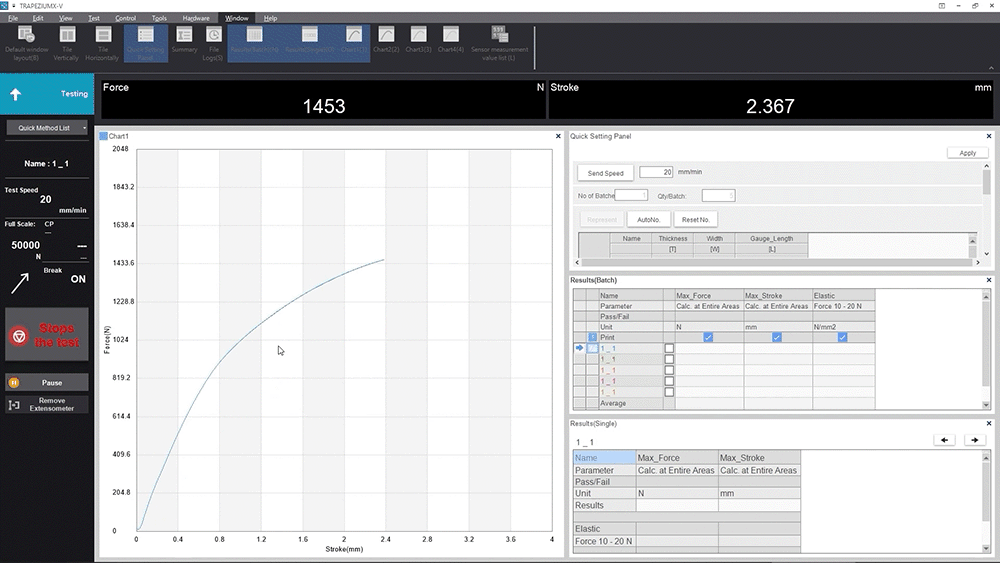
ASTM D638 Specimen Details
The shape and size of the specimen used in ASTM D638 are critical to the accuracy and relevance of the test results. ASTM D638 typically specifies the use of a "dumbbell" or dog-bone-shaped specimen, which concentrates stress in the middle section to ensure a consistent fracture pattern. Key specimen details include:
Type I Specimens: The most common size, typically used for materials with thicknesses between 3.2 mm and 13 mm, featuring a gauge length of 50 mm.
Other Types: Type II, III, IV, and V specimens are also specified for various material types and thicknesses, ranging from thin films to thicker sheets.
Surface Preparation: Careful preparation of the specimen is essential to prevent flaws that could influence test results, including proper edge finishing and ensuring consistent thickness across the specimen.
Thickness and Width: The specimen's thickness is usually between 1 mm and 14 mm, depending on the material type. Width and gauge length vary with the specimen type.
Application Notes Relevant to ASTM D638
Tensile Properties of Rigid and Semi-rigid Plastics (ASTM D638 and ISO 527)
Every manufactured plastic is subjected to mechanical loading conditions throughout its operating lifetime. In order to prevent mechanical failure, it is imperative that the mechanical properties be determined and routinely verified to confirm that the material is suitable for the intended application. Tensile testing is one such method routinely used to determine the mechanical properties of plastics. Manufacturers, consumers, researchers and governing agencies are some examples of groups who perform tensile tests to ensure consistency, verify quality, and develop standards. Tensile tests are most commonly performed using a universal test frame, grips and an extensometer. Shimadzu Scientific Instruments offers a full line of test frames, grips and extensometers that meet or exceed the requirements outlined in testing standards such as ASTM D638 and ISO 527.




